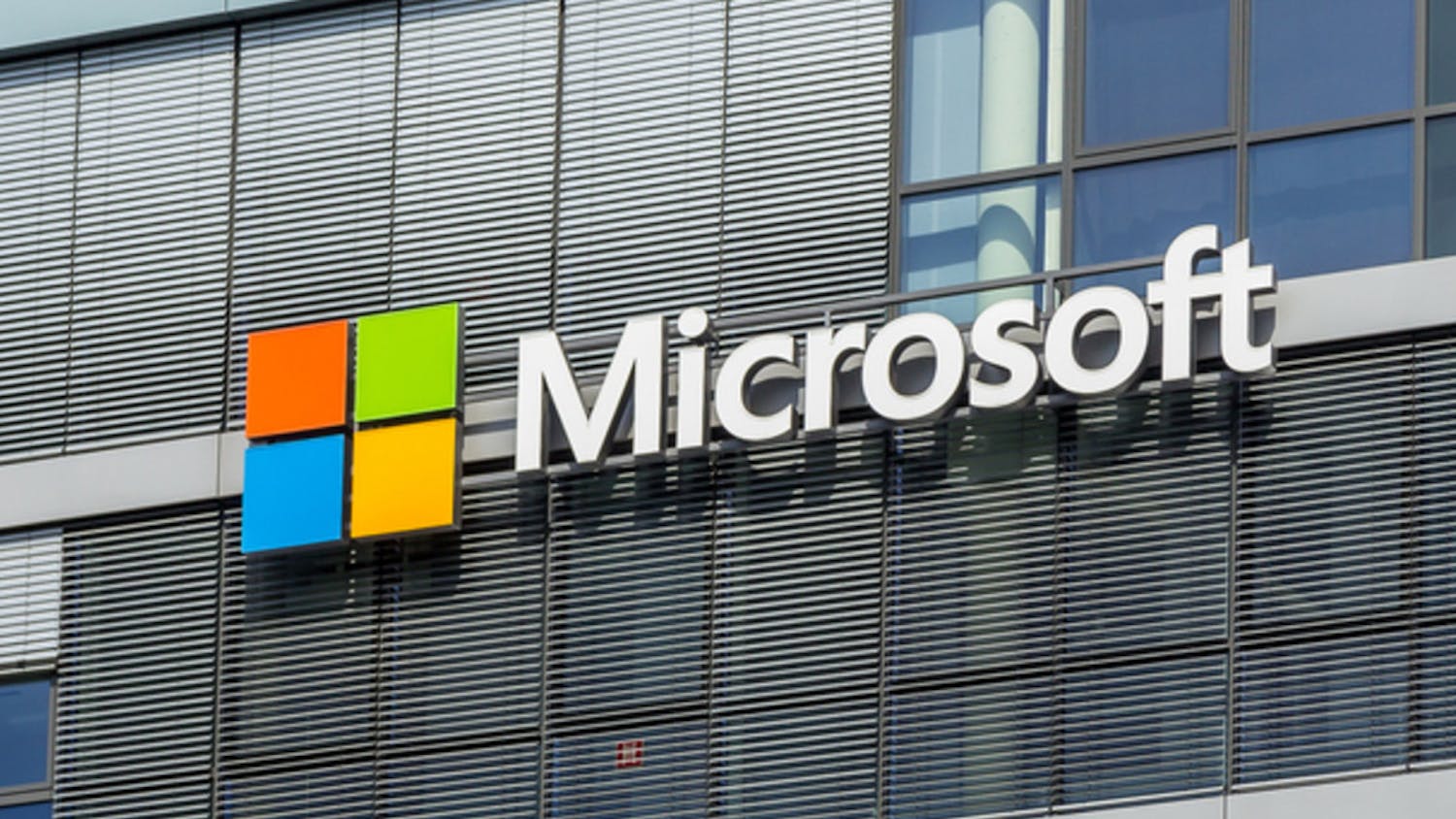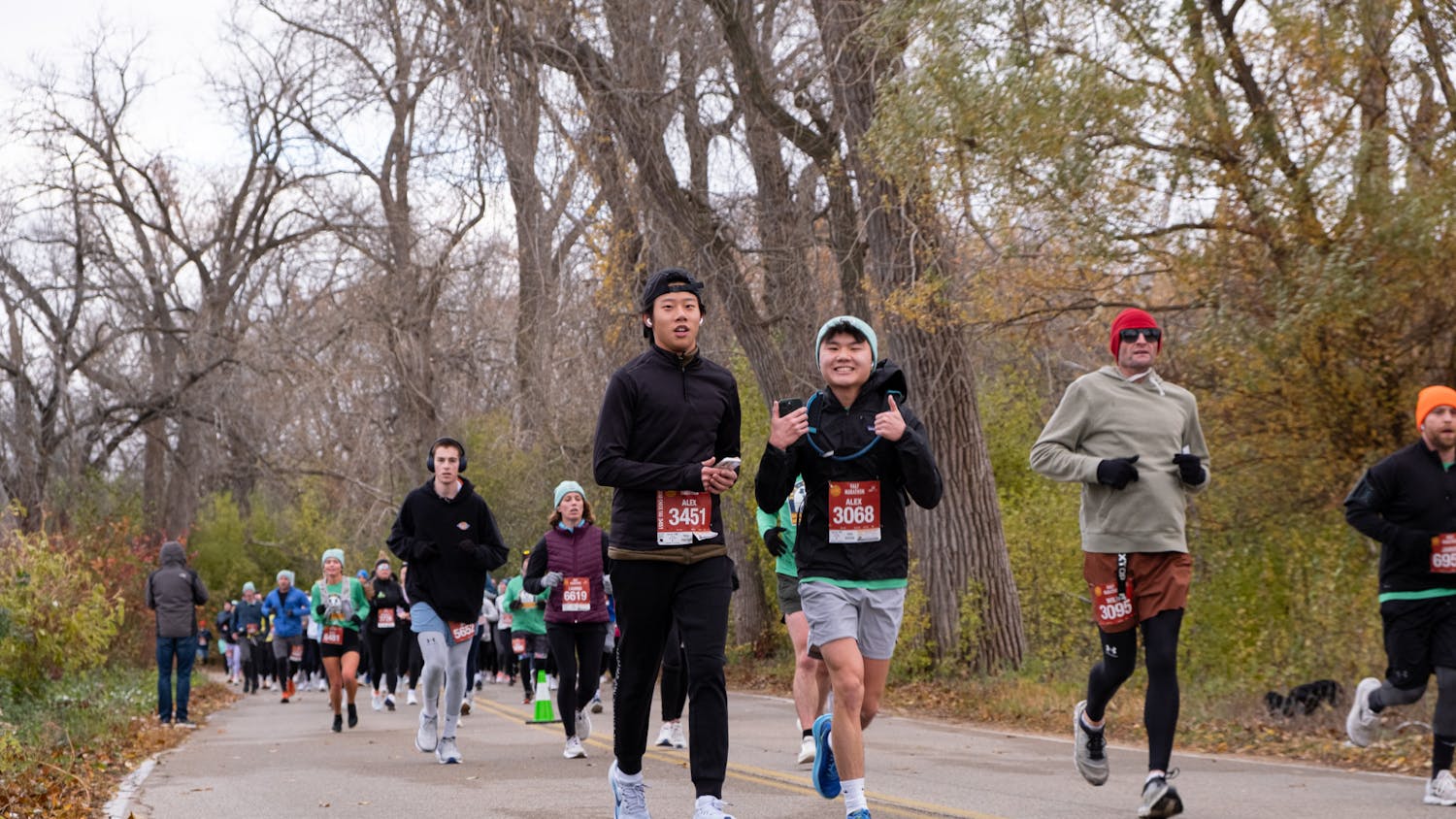Wisconsin Supreme Court Justice Susan Crawford discussed her 2024 election — the most expensive state judicial race in the nation’s history — and the future of the court at an event with the Wisconsin Union Directorate Society and Politics Committee Nov. 5.
Moderated by University of Wisconsin-Madison Political Science Professor Barry Burden, founding director of the Elections Research Center, Crawford first raised concerns about the impact of national conservative donors, like Elon Musk, that funded her opponent’s campaign.
“If [Elon Musk] had been successful and had been able to... buy a justice out of state [for the] supreme court... we'd see him out doing it again in all kinds of races all over the country,” Crawford said.
Although she expressed concern about the sustainability and fairness of high-cost elections, Crawford said the expenses of this race played a role in bringing voters to the polls, which led to a historic turnout.
“I think getting a lot of voters to the polls is a good thing. I think having people participate, and having people recognize that the judiciary is really important and affects people's rights... is all positive,” Crawford said.
She offered potential reforms, like public funding and retention elections, but said she doubts their feasibility under current campaign finance laws.
The conversation transitioned to the areas of law Crawford believed could emerge as she spends the next ten years on the court. She pointed to technology and artificial intelligence as rapidly evolving areas affecting privacy and constitutional law, particularly under the Fourth Amendment.
"How do we interpret the Fourth Amendment in some of those contexts that our founding fathers would not have been able to even imagine?" Crawford asked.
Crawford said AI could soon play a role in all steps of the legal process, especially the technologies police use to obtain evidence.
Crawford also emphasized the importance of respecting precedent and criticized the United States Supreme Court’s Dobbs decision for overturning Roe v. Wade without sufficient justification.
Crawford discussed her early career, where she studied English literature before transitioning to law. She noted her English background helped her with close textual analysis, which she believes is essential for law students.
"I wanted to be more engaged in problem solving and sort of grappling with the issues of the day," Crawford said about her transition to law.
Crawford then spent time as a litigator for the state, where she represented Planned Parenthood. She noted that a highlight of her career was appearing in front of the Wisconsin Supreme Court for the first time in 1998.
“And the first time I appeared there, I was working as an Assistant Attorney General for the state, and I got to stand up at that podium and say, may it please the Court. My name is Susan Crawford. I'm representing the state of Wisconsin, and that was a really just [a] chilling moment for me.”
She found that her cases would often lose once they reached the Wisconsin Supreme Court due to its conservative majority and their defense of Scott Walker’s political agenda.
“So I think that really motivated me to take a different approach and a different step in my career, and to become a judge, to become one of the decision makers,” Crawford said.
Audience Q&A
The event concluded with audience questions on judicial impartiality, campaign financing and the role of courts in a divided political climate.
Jack Plasterer, a Master’s graduate in Cartography and GIS from UW-Madison, asked about decoupling politics from the process of electing or appointing Supreme Court justices and what it would take to reform the state’s election process.
“We have to amend our state constitution,” said Crawford. “And the process for amending the state constitution is that the legislature has to adopt the proposed amendment twice, in I think, consecutive terms, and then it has to be put out to a vote by the public. So that's a pretty long process.”
Max Ozer-Staton, a J.D. Candidate at UW-Madison, inquired about the judicial philosophy of showing restraint versus making politically motivated decisions.
“I think people use the term judicial activism or the term legislating from the bench when they just disagree with how the case was decided by the judges that are making that decision. I think it's a, you know, a pretty easy and kind of sloppy critique.”
UW-Madison freshman Celeste Kronstedt asked about handling cases with clear laws but significant policy impacts.
“I think it is, you know, it's part of our case law and tradition in Wisconsin that the court should not overturn precedent unless it has a very good reason, very strong reason, to do so. And one of those reasons can be that the court believes that the prior case that's being overturned, the prior case was wrongly decided.”
Another student, Ethan Jones, asked about the impact and future of campaign finance law on election participation.
“I view the law as, I think the role of the law is, it's a tool to help people and to solve problems and to kind of structure our society. So I'm always looking at the law as a problem-solving tool, and I don't think that laws really mean a whole lot divorced from a particular context."
Burden closed the event by thanking Crawford for her time and emphasizing the need for thoughtful, skilled public servants in government.
“It's helpful to know that we have thoughtful, well-trained people who are in those positions of power really looking out for the betterment of society,” Burden said.






